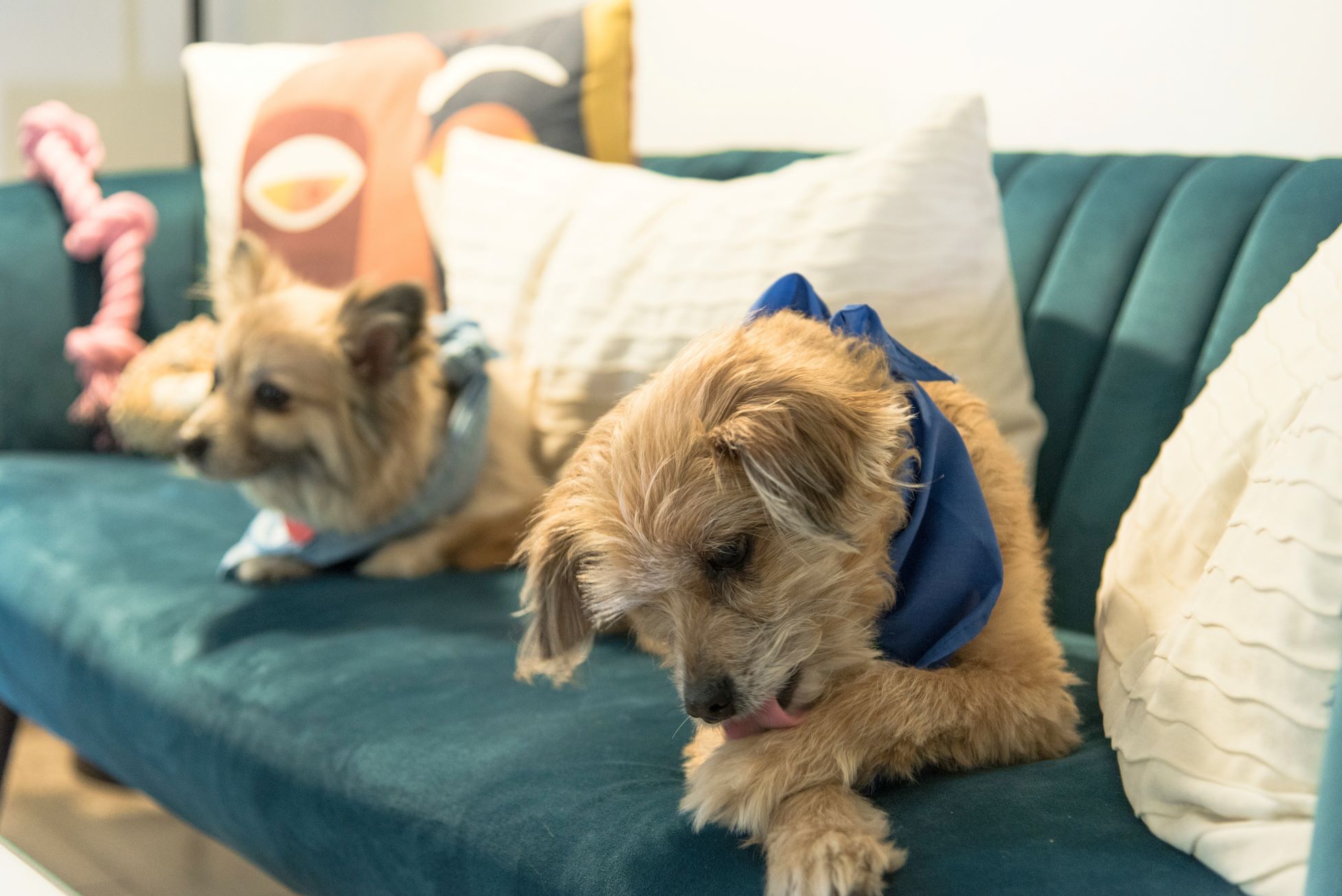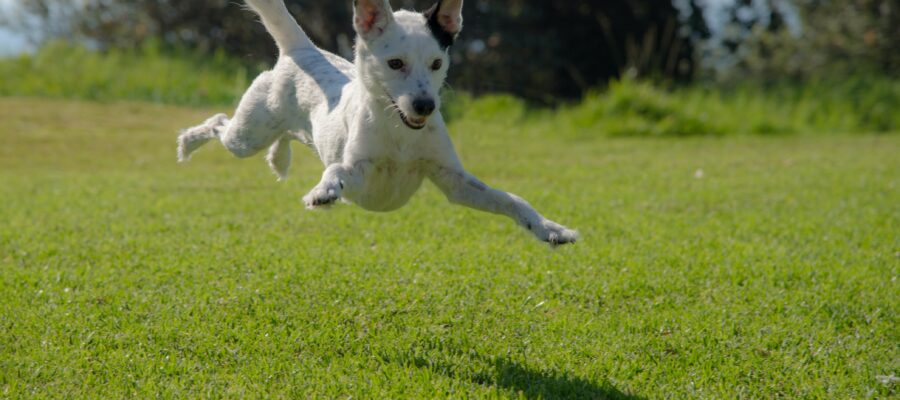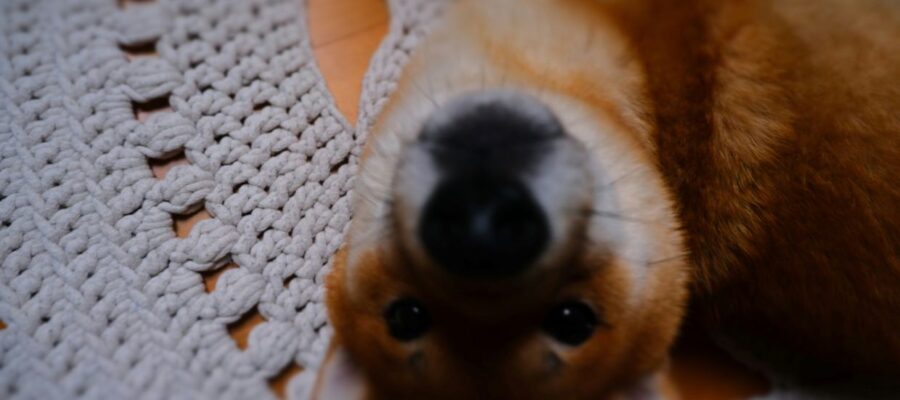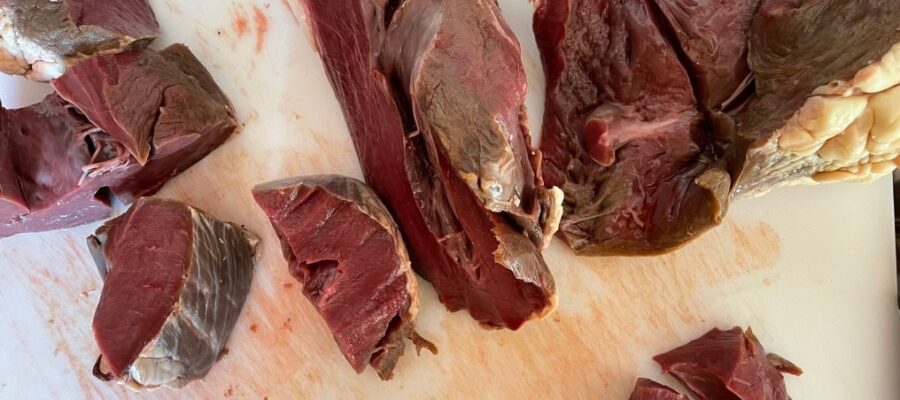
The Hidden Reasons Behind Paw Licking in Dogs
While a little paw licking is par for the course for our canine companions, excessive or obsessive licking can be a sign that something’s amiss. From allergies to anxiety, there’s a wide range of reasons why dogs fixate on their feet. Understanding the possible triggers is the first step towards helping your furry friend find relief.
Why All the Licking? Potential Causes
-
Environmental Allergies: One of the most common culprits behind itchy paws is allergic reactions. Dogs can be allergic to grass, pollen, dust mites, mold, and various other substances in their environment. Constant licking is their way of trying to soothe the discomfort.
-
Food Allergies: Like humans, dogs can develop sensitivities or full-blown allergies to certain ingredients in their food. Common food allergens include proteins like beef, chicken, and dairy, as well as grains or additives. Itchy paws can be one of many symptoms.
-
Injuries and Foreign Objects: Seemingly minor issues like a cut, splinter, insect bite, burr, or something embedded between their toes can drive a dog to focus intensely on licking the affected area. Thoroughly inspect your dog’s paws when licking seems localized.
-
Skin Infections: Bacterial or yeast infections can take hold on paws, especially if they get damp frequently or have minor scratches. Signs include redness, swelling, odor, and sometimes discharge.
-
Dry Skin: Cold winter weather, arid climates, or certain soaps and products can lead to dry, cracked paw pads. Dogs lick to add moisture and try to alleviate the discomfort.
-
Boredom or Anxiety: For some dogs, excessive paw-licking becomes a compulsive, stress-relieving behavior. This can be rooted in boredom, lack of mental stimulation, or deeper anxieties like separation anxiety.
-
Arthritis and Joint Pain: Senior dogs in particular might lick at sore, arthritic joints. While this doesn’t resolve the underlying problem, it’s their way of seeking some relief.
Helping Your Dog: What You Can Do
- Investigate and Address the Cause: The only way to truly help a paw-licking dog is to determine why it’s happening.
- Veterinary Visit: Always start with a vet checkup to rule out injuries, infections, allergies, or more serious medical issues. Your vet can recommend appropriate treatment plans, medications, or lifestyle changes.
- At-Home Paw Pampering:
- Cleaning: Gently clean your dog’s paws after walks with a damp cloth or dog-safe wipes to remove irritants.
- Protection: Consider booties for walks on hot pavement, rough terrain, or if allergens are a known issue.
- Soothing Balm: Apply a paw balm designed for dogs to nourish dry or cracked pads. Look for natural ingredients like shea butter or coconut oil.
- Tackling Allergies:
- Hypoallergenic Diet: Your vet might suggest a food elimination trial to pinpoint food allergies.
- Allergy Testing: Specialized tests can help identify specific environmental allergy triggers.
- Medication: Antihistamines or other allergy medications can provide relief from itching and inflammation.
- Enrichment and Exercise:
- Plenty of Playtime: Ensure your dog gets enough physical exercise and mental stimulation. Tired dogs are less likely to resort to boredom licking.
- Puzzle Toys: Keep their mind engaged with interactive food puzzles or treat-dispensing toys.
- Training and Games: Teaching new tricks or playing games provides mental exercise and strengthens your bond.
- Addressing Anxiety: This may require a multifaceted approach:
- Supplements: Calming supplements with ingredients like L-theanine or chamomile can be helpful (consult your vet).
- Behavior Modification: Positive reinforcement training and desensitization techniques can help address anxiety triggers.
- Severe Cases: Your veterinarian might prescribe anxiety medication if other approaches aren’t sufficient.
Warning Signs: When to Seek Veterinary Help
- Excessive Licking That Doesn’t Improve: If your dog’s licking persists despite at-home care, it’s time for a vet visit.
- Redness, Swelling, Discharge: These indicate potential infections needing treatment.
- Limping or Obvious Pain: Suggests an injury requiring professional attention.
- Behavioral Changes: Licking paired with lethargy, appetite loss, or other unusual behaviors warrants further investigation.
A Patient and Observant Owner Makes All the Difference
By understanding the potential reasons behind paw licking and taking the right steps, you can help your dog find relief and break this frustrating habit.






